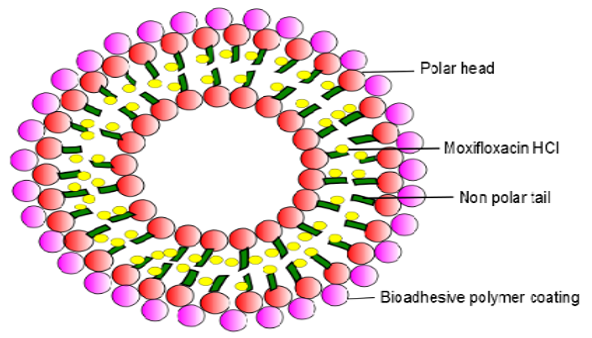Abstract
Corneal ulcer is an open sore or epithelial defect with an inflammation of the cornea of the eye. Most of the corneal ulcers are caused by bacterial infections and are common in people who wear contact lenses. Moxifloxacin eye drops are frequently used for the treatment of infectious ulcers. However such formulations have a major drawback, that is the short duration of action and usually, require 4-6 times instillation daily. A bioadhesive polymer coated niosomal formulation of moxifloxacin was purposed to show a longer retention time on eyes and subsequent reduction in dosing frequency. Niosomes were prepared by solvent injection method using cholesterol and span 60. The coating of the niosomes was done using Carbopol 934or HPMC as bioadhesive polymer. The mean particle size of bioadhesive niosomes found to be below 200nm. Optimization of the coating was based on in vitro diffusion studies, ex vivo transcorneal permeation studies and bioadhesion studies. The retention time of the formulation was determined by in vitro and ex vivo bioadhesion testing. The antimicrobial assay confirmed the potency of the formulation against the gram-negative organism. The current study revealed that bioadhesive niosomal formulations have longer corneal retention time and have sustained drug release for a period of 24 hours.
Full text article
Authors

This work is licensed under a Creative Commons Attribution-NonCommercial-NoDerivatives 4.0 International License.

